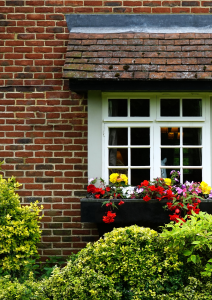The process of buying a house is often lengthy and can be stressful, especially for first-timers. Being a huge financial investment, you need to do everything perfectly and account for every step. This is why in most cases, individuals will enlist the skills of experienced mortgage advisors, such as Cardiff-based Eden Hawk Financial Solutions. Here are essential steps to guide you through and make the process easier.
Get Your Finances In Order
Buying a house demands a good amount of your finances. The process involves a lot of steps that may cost you more than you expect, especially if you don’t plan your finances. Prepare a financial plan to cover all the costs and take your time to research affordable real estate agents so you get to save. Ensure you have a mortgage if you need one so the entire process is smooth and doesn’t overstretch your pockets.
Register With Estate Agents
Choose the area you want to live in first so you can easily register with local estate agents around the area. Registration is free so you won’t have any obligation to meet. Registering with agents is an added advantage as it helps you find the house you are looking for quickly since agents often contact registered buyers before they list a house online.
Look For An Affordable House
 When your finances are in place and you have registered with estate agents, you can now start the house-hunting process. Look for a house within your budget by utilizing all the available research options. As you house hunt, consider your financial status from all angles. Consider how you may cope financially in case of changes such as higher interest rates and give yourself an allowance on your budget. Check your credit report and go for the right mortgage.
When your finances are in place and you have registered with estate agents, you can now start the house-hunting process. Look for a house within your budget by utilizing all the available research options. As you house hunt, consider your financial status from all angles. Consider how you may cope financially in case of changes such as higher interest rates and give yourself an allowance on your budget. Check your credit report and go for the right mortgage.
You will have a variety of options after conducting thorough research on available houses. Apart from viewing online, you may want to view some houses in person. Besides, viewing a house in person gives a deeper understanding and helps you identify any issues that may affect your decision on the purchase.
Make An Offer
It is common to offer slightly less than the asking price. However, if more people are interested in the property you are eyeing, you may have to offer the asking price and sometimes even more than the asking price. Check out the amount similar properties in the area have sold for so you can determine how much to spend on the property. Such information can be found on the internet. As soon as you settle on the amount to offer, communicate with your estate agent either in person or via phone but ensure you also put it in writing.
Find A Property Solicitor Or Conveyancer
Conveyancing is the legal procedure that occurs once your offer has been accepted. Depending on the location, conveyancing may include checking contracts, carrying out searches, paying stamp duty, drawing up and dealing with the land registry. Though the process may vary in different locations, you will need an experienced solicitor or a conveyancer to take you through the entire process.
Get A Property Survey
Property surveys are essential as they assess the condition of buildings in the property and detect any structural issues. Though property surveys are optional, you should be aware of structural issues before purchasing a house so you make an informed decision on whether to buy or not. If you decide to buy the property, you will want to factor in the costs of repairing the building and make a new offer. Conducting a survey helps you negotiate on the buying price down or request the seller to repair the structure.

Most surveyors conduct a thorough survey and provide three levels, a home buyer’s report, a building survey as well as a condition report. The cost of your survey depends on size, type of property as well as location. Don’t mistake a valuation survey for a house survey. The valuation survey is very different from a house survey and is conducted by your mortgage lender so may not reveal as much as a house survey.
Get Home Insurance
Home insurance is vital as it covers your buildings and the new property. Get one immediately you exchange contracts since you are obligated to buy the property the moment you exchange contracts so if any accidents like flooding occurs and you aren’t insured, you suffer the loss. Some mortgage providers make it a condition of lending so the house is covered in case of accidents before completion. However, those purchasing a new building don’t need insurance until the completion.
Exchange Contracts
Exchange of contracts occurs once the seller and the buyer’s representatives swap sign the contracts and the buyer makes a deposit. Before you exchange the contracts, you need to prepare a list of things in advance. They include a written mortgage offer, buildings insurance from the date of exchange and an agreed completion date. Immediately you exchange contracts, you are legally bound in the agreement to purchase the property. You can now breathe a sigh of relief as chances of anything interfering with the purchase are minimal. Your conveyancer will then lodge an interest on the house allowing you to pay the seller then apply to the land registry so deeds are transferred to your name.
Complete the Process
In most cases, completion takes place about two weeks after the exchange though this can be adjusted to a more convenient date. On completion day, you will transfer the money to the seller and collect the keys from the agent s you can move in and decorate the house according to your liking.
Final Thoughts
The process of buying a house demands a lot of time and effort. If you don’t plan, you may find it overwhelming and even interfering with your schedule. Take your time and work with experienced solicitors, agents and surveyors to finalize the process.







Add Comment